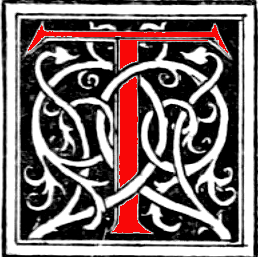Research Institute for Cultural and Historical Societies (RICH)
Radboud University, Nijmegen, The Netherlands

hough it had been part of the United Kingdom since 1801, Ireland’s position within the British Empire during the long nineteenth century was complicated. The Irish were a colonial people, yet in many ways they also contributed to the expansion and administration of the British Empire. Moreover, Irish emigration, particularly to the United States, raised the issue of Irish ‘whiteness’, but also saw many Irish endorse chattel slavery in the southern United States and contribute to the removal of the Native population in the US south and west. And as colonised or colonising subjects, or indeed both, many Irish writers, artists, and policy makers at home and abroad imagined and reimagined the country’s position within the British Empire and beyond.
In recent years, the legacies of (Western) colonialism have received increased – and necessary – scrutiny in both the academic and public spheres. This has led to initiatives such as Rhodes Must Fall, which quickly became a global phenomenon, and efforts to decolonise academic curricula and scholarship. It also sparked renewed attention to issues concerning problematic heritage, such as the statue of John Mitchel in Newry, and the presence of colonial art and artefacts in Western museum collections. While the question of whether or not Ireland was a colony has occupied scholars for several decades (see for instance work by Stephen Howe, Joe Cleary, and David Lloyd), in recent years Irish Studies has also started to become more self-reflective with regard to the complicated question of Irish complicity in colonial and racist systems and the ongoing ramifications of this in education and research – issues discussed, for instance, in a recent roundtable in Irish Historical Studies (2021).
This conference seeks to consider Ireland’s and the Irish diaspora’s position in relation to colonisation and imperialism during the long nineteenth century, as well as the reverberations and reconsiderations of this past in recent and ongoing scholarship and education. SSNCI is particularly interested in papers on the following topics, but would of course also welcome papers on related themes not mentioned here, from many disciplinary perspectives.
Topics:
- The Irish and the British empire
- The Irish and settler colonialism
- Decolonising the curriculum and the museum
- ‘Irish whiteness’, racism and colonialism
- Ireland, Irish North-America and issues of slavery
- “Was Ireland a colony?”
- Anti-imperialism/ anti-colonialism
- Educational systems and colonialism
- Colonialism, the visual arts and literature
- Comparative colonial networks: Britain-Ireland and beyond
- Religion and the ‘religious empire’
- Colonial and imperial institutions
- Ireland, cartography and empire
- Revisionism and the colonial question
- Representations of the Empire and the imperial other
- Comparative perspectives on colonialism: Ireland and beyond
- Immigrants from British colonies to Ireland
- Land and language
Abstracts of 250 words for 20-minute papers can be sent to ssnci@ru.nl by 1 March 2023. Please also include a 50-word biographical note. SSNCI also welcomes proposals for panels of no more than 3 papers.
Confirmed keynote speakers
- Dr Shahmima Akhtar (Royal Holloway, University of London)
- Dr Timothy McMahon (Marquette University)
- Dr Sarah Roddy (Maynooth University)
- Cauvery Madhavan, novelist
Conference committee
- Prof Dr Marguérite Corporaal
- Dr Giulia Bruna
- Dr Chris Cusack
- Dr Lindsay Janssen
- Sophie van Os MA
Last modified 4 February 2023